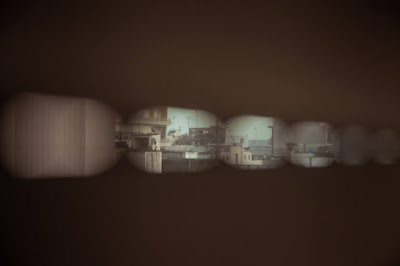Fanfiction that is even better than the original. An Amazon #1 best-seller.I have the utmost respect for Agatha Christie. I think I have read all her whodunnits. Her genius lay in the creation of a puzzle and the masterful misdirection she employs even as she provides the reader with clear clues to the solution of the mystery. I analysed this in my review of The Mirror Crack'd From Side to Side. But, despite creating Hercule Poirot and Miss Marple, her characters tend to be stereotypical puppets whose strings she pulls. Their psychology tends to be simplistic.
Sophie Hannah's 'continuation novel', a murder mystery featuring Poirot (authorised by Christie's heirs), has deeper and more sinister psychology, more complex characters, and a more compelling setting. Christie can do comedy but Hannah's yokel policeman (Inspector Mackle) is laugh out loud (no subtle characterisation here!). pPoirot is a little more foreign. Catchpool, the narrating sidekick, is a perfect successor to Captain Hastings, the first Watson to Poirot's Holmes. And Catchpool's mother managed to be both ridiculous and yet utterly real (she reminded me of my own mother) and the way she set the scene with a completely convoluted narrative was a masterclass in writing (it reminded me of Lord Peter's mother in the Wimsey detective novels of Dorothy Sayers, starting with Whose Body?
Poirot and his faithful companion Catchpool reluctantly travel to a mansion on a crumbling cliff to investigate the unsolved murder of a patient in a local hospital whose death mysteriously threatens another dying man. Can they solve the case before Christmas or will they be forced to undergo the festivities in a fractured family whose cook produces inedible food?
I'm definitely going to use Catchpool's 'Now That It's Here' theory in non-Christmas-tree contexts.
And if I guessed the solution to the mystery almost from the very start, so what? This was a hugely enjoyable read and I look forward to reading more by this talented author.
Selected quotes:
These include some original descriptions, such as the one about the house by the road, some interesting reflections on life, such as those about grief, and injustice, and some delightful cliches made original.
- “I was growing ever more reluctant to leave London. Life and vitality seemed to stop, or at least to struggle for breath, when one strayed too far outside that great city.” (Ch 1)
- “The wind in Norfolk ... was severe enough to blow a man off his feet. It struck me as likely that, having once done battle with it, I would forever think of its London counterpart as an amateur.” (Ch 3)
- “He spoke in an inelegant manner; one had the sense that a struggle between words and teeth was taking place, with no clear winner emerging.” (Ch 3)
- “It is possible to grieve before a death, you know. I have seen several of my about-to-be-widowed friends do precisely that. The grief comes first, and at the most inconvenient time, while there is still serious illness and a rapid demise to contend with, and the back-breaking drudgery that accompanies all of that. The death, when it finally arrives, can be a relief.” (Ch 3)
- “Duluth Cottage lived sociably at the edge of the road, looking as eager to meet passers-by as a house could, in an arrangement that raised the question of whether an inexpertly-steered motorcar ... might one day make an accidental appearance in its sitting room.” (Ch 15)
- “Like her house, she was wide but not tall.” (Ch 15)
- “A too-large mouth that made Poirot think of a duck and not at all of kissing.” (Ch 15)
- “The worst part of any terrible thing, always, is the dread one feels in advance.Anything that has already happened, however ghastly, can be recovered from, or at least incorporated somehow.” (Ch 16)
- “Life is never easy. ... There are different kinds of difficult, and one must choose between them.” (Ch 16)
- “Poirot’s face was a picture. It made me think of a goldfish that had fallen out of its bowl and could not understand why there was suddenly no water for it to breathe.” (Ch 19) I love the way she takes a cliche and drills it down to its origins and then expands it to make it sound original and more alive.
- “We imagine it is the injustice that stings, but the worst pain is caused, always, by the idea that things should be fair, when they never have been and never will be.” (Ch 19)
- “Does it not strike you as horribly, awfully unfair ... that something as morally irrelevant as biological accident - the hereditary physical traits one is born with, that one has done nothing to earn - should be of such consequence? If spirit, courage or faith counted for anything, if creativity or determination had any bearing on what becomes of a person, Arnold would live forever and I would waste away into nothingness.” (Ch 19)
- “It is hard to describe how I feel whenever Poirot walks into a room I am in. It is the mental equivalent of light being transformed into colour by a diamond's fluorescence.” (Ch 21)
- “Whatever you most wish to keep hidden, steal yourself for the ordeal ahead, and then tell it to the whole world. At once you will be free.” (Ch 36)
December 2024; 360 pages
First published by Harper Collins in 2023
My paperback edition 2024
.JPG)

.jpg)
.JPG)





